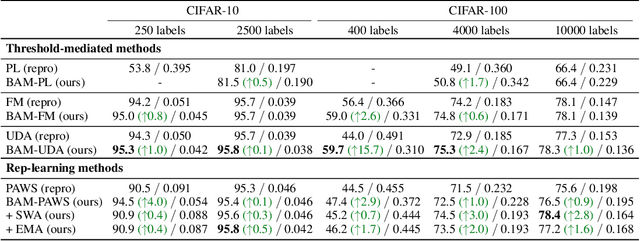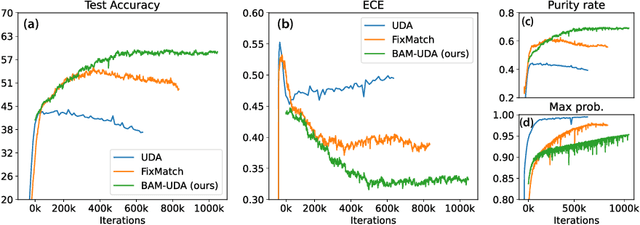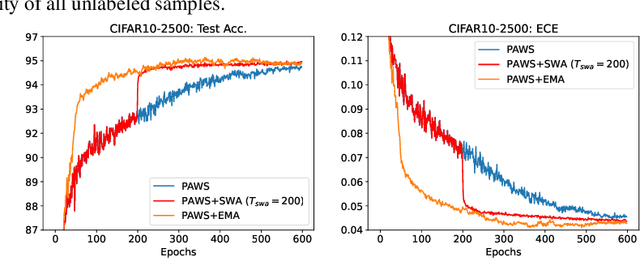On the Importance of Calibration in Semi-supervised Learning
Paper and Code
Oct 10, 2022



State-of-the-art (SOTA) semi-supervised learning (SSL) methods have been highly successful in leveraging a mix of labeled and unlabeled data by combining techniques of consistency regularization and pseudo-labeling. During pseudo-labeling, the model's predictions on unlabeled data are used for training and thus, model calibration is important in mitigating confirmation bias. Yet, many SOTA methods are optimized for model performance, with little focus directed to improve model calibration. In this work, we empirically demonstrate that model calibration is strongly correlated with model performance and propose to improve calibration via approximate Bayesian techniques. We introduce a family of new SSL models that optimizes for calibration and demonstrate their effectiveness across standard vision benchmarks of CIFAR-10, CIFAR-100 and ImageNet, giving up to 15.9% improvement in test accuracy. Furthermore, we also demonstrate their effectiveness in additional realistic and challenging problems, such as class-imbalanced datasets and in photonics science.
 Add to Chrome
Add to Chrome Add to Firefox
Add to Firefox Add to Edge
Add to Edge